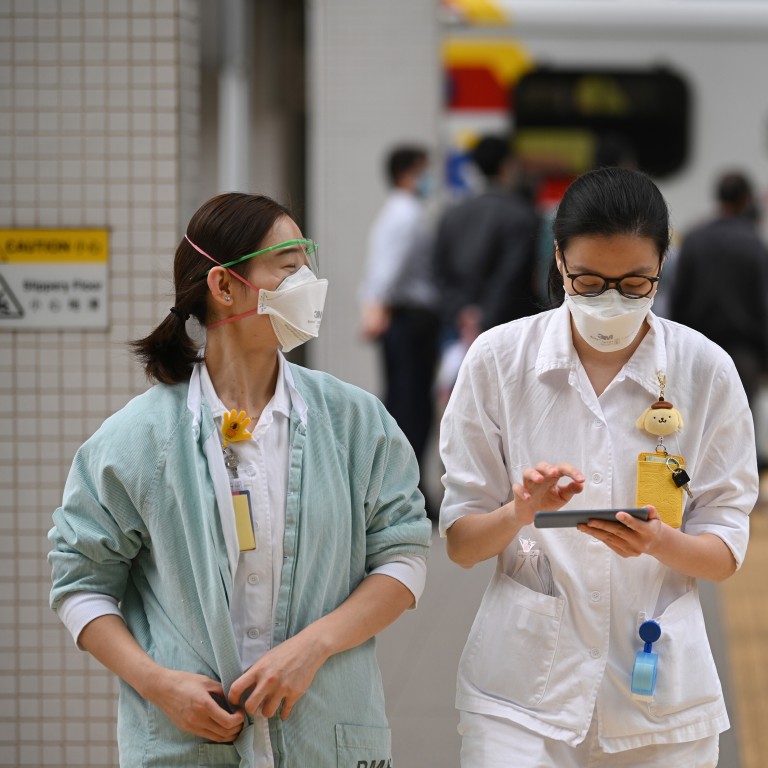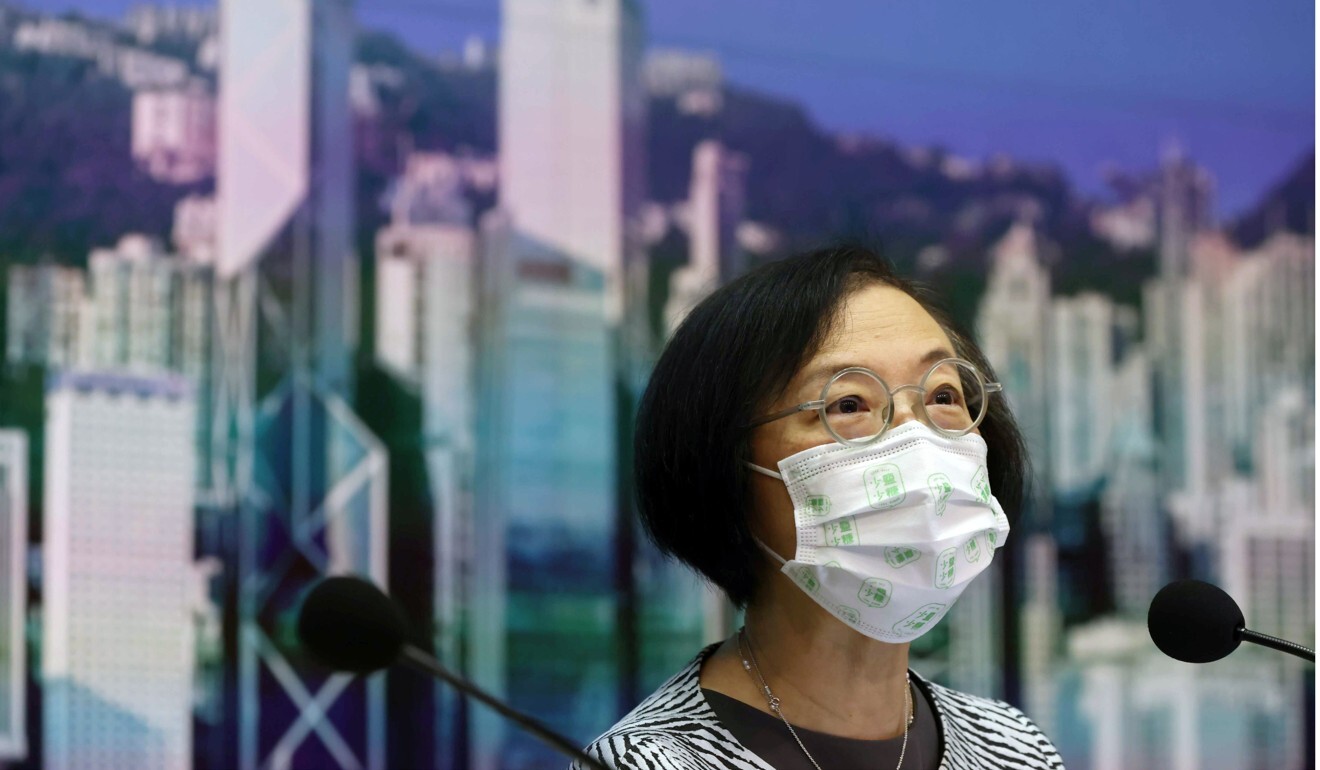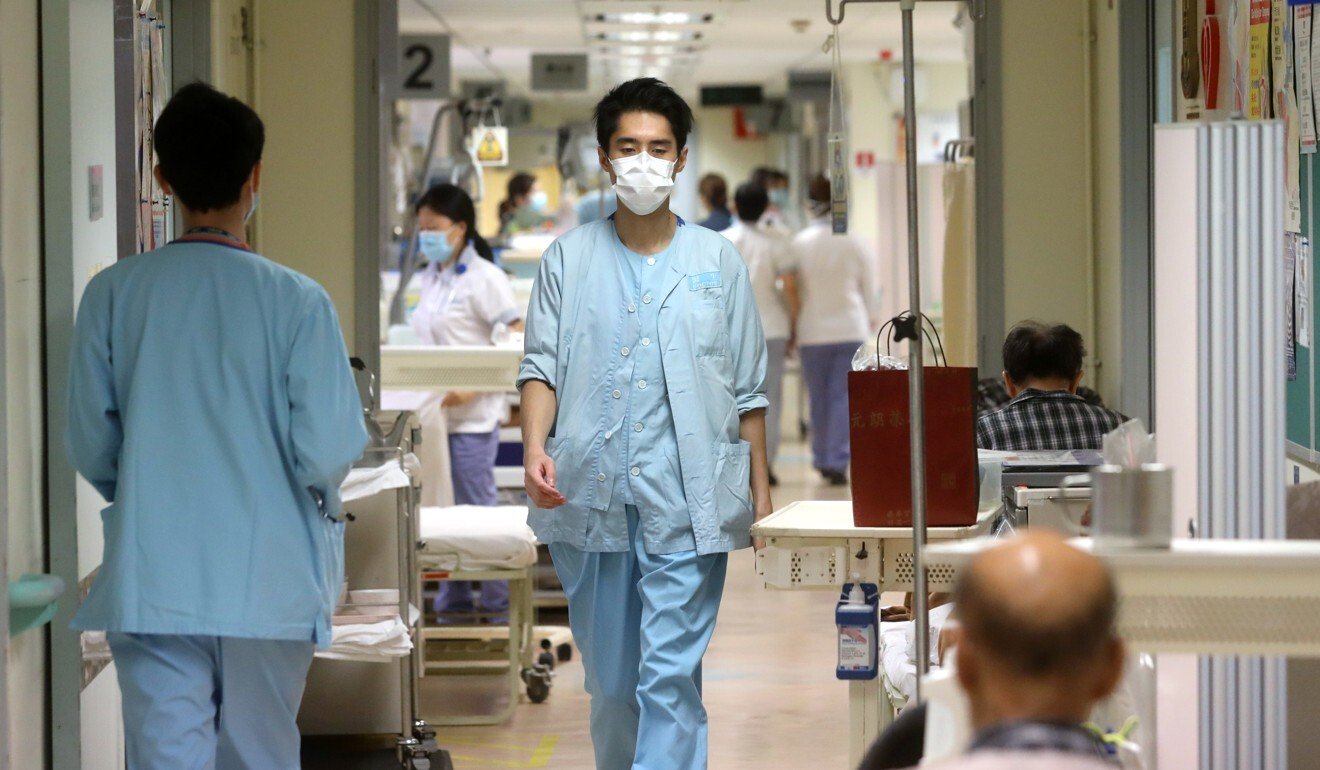
Hong Kong plans to allow doctors who are not permanent residents to work as specialists
- The proposal by health authorities follows complaints that previous draft amendments were ‘too strict’ and may not attract enough doctors, health minister says
- Other changes include internships for permanent resident graduates of foreign medical schools and opportunities for doctors working under limited registration scheme
Hong Kong health authorities have proposed further relaxing a hiring scheme aimed at tackling the city’s shortage of doctors, opening the door for non-permanent residents – including from mainland China – to practise as specialists without taking a local licensing exam.
The concession, along with two other changes, were announced by Secretary for Food and Health Sophia Chan Siu-chee on Tuesday. They were made to address concerns of lawmakers examining a bill amending the Medical Registration Ordinance in the hopes it could be passed before the end of the current legislative session in October, she said.
“Some have said the previous draft amendments were too strict and wouldn’t be able to achieve the goal of attracting more foreign-trained doctors,” Chan told a press conference, referring to any doctor trained outside Hong Kong. “The suggestions to further relax the rules will hopefully attract more specialist doctors, as there is a large demand for them and wait times are currently very long.”
But just how many would be willing to come was difficult to estimate at this point, she admitted.

Under the original proposed amendments only permanent residents who had graduated from a recognised medical school and were already registered to practise outside Hong Kong would be allowed to skip the local licensing exam.
If doctors had not yet started specialist training overseas when they applied, they would have been required to spend at least 11 years completing training and fulfilling the minimum required duration of service in the public sector.
A 10-member committee consisting of health officials, educators and medical watchdog members will be established to draft a list of recognised medical schools, with the chief executive choosing as many as four of the members.
Medical community debate about foreign-trained doctors boils over amid new policy proposals
The latest amendment expands the hiring scheme to cover non-permanent residents but limits eligibility to specialist doctors.
Under the second change, graduates of foreign medical schools who are permanent residents and able to pass the local licensing exams will be allowed to intern in Hong Kong.
The third change involves allowing foreign doctors working in the city under the limited registration scheme – those who are not required to be trained at the recognised institutions – to eventually become fully registered medical practitioners.
Previously, limited registration doctors – who are not subject to local licensing exams – were given contracts that could be renewed every three years but did not have the option of becoming fully registered.
Those with specialist qualifications who have worked for five years under the limited registration scheme will be allowed to become fully registered doctors after serving another five years at a public health institution.
Hong Kong currently has a ratio of two doctors for every 1,000 residents, compared with Australia’s 3.8 and Sweden’s 4.3. Chan said a failure to adopt the new framework would result in 1,610 fewer doctors than needed by 2030, with that figure rising to 1,949 by 2040.
Some local doctors oppose the plan, expressing concerns over the qualifications of their foreign-trained counterparts, as well as worrying about an influx of doctors trained on the mainland. But it remains unclear how many medical schools over the border would be on the list of recognised institutions.
Chan stressed the qualifications of foreign-trained specialists would still have to be recognised by the Hong Kong Academy of Medicine and its respective colleges.
“We have all these different safeguards coming together in order to ensure all these doctors coming to Hong Kong are of good quality,” she said.
Foreign-trained doctors scheme just ‘opening a small door’, with annual intake of up to 300
Dr Pierre Chan, the lawmaker for the medical sector, again criticised the amendments, saying it was unfair to local medical students to allow more foreign-trained graduates to intern in the city.
Basing the list of recognised medical institutions only on their rankings would also make it hard to distinguish individual doctors’ abilities and actual clinical experience, he said.
“The government does not have a fair assessment framework to determine the professionalism and qualification of non-locally trained medical graduates, which makes one worry whether they are able to handle the stress and heavy workload at local hospitals,” he said.
Dr Tony Ling Siu-chi, president of the Hong Kong Public Doctors’ Association, also expressed concerns over the criteria for the selection of recognised medical institutions and the experience level of overseas graduates.
“Not to target Chinese medical schools, but because of local regulations, students there have very little clinical experience compared to students in Hong Kong, where they have extensive hands-on opportunities with patients,” Ling said. “Without enough clinical experience, it would be difficult not just for doctors here, but for the interns as well, because we’re already so busy we will not be able to keep an eye on them as much.”

Ling urged the government to uphold its promise to increase resources for the medical sector and ensure there were jobs for every local medical graduate. Resources should go to boosting local specialist training, increasing the numbers of operating rooms, stepping up medical services for the underprivileged and adding public hospital beds, the number of which had stayed at the same level for the past 20 years, he said.
Lawmaker Elizabeth Quat, who chairs the bills committee examining the amendments, welcomed the changes and said she was confident the legislation would pass before the Legislative Council term ended.
The government would guarantee enough training opportunities for local graduates, she said, adding she did not think the new rules would negatively impact them as they too would be needed to fill the doctor shortage.
Proposal to let doctors trained overseas work in Hong Kong sparks anger among medical groups
The Hospital Authority also supported the changes and said admitting non-locally trained doctors with specialist qualifications would alleviate the manpower shortage, adding that they could assist in training local specialists.
Tim Pang Hung-cheong, a patients’ rights advocate with the Society for Community Organisation, also welcomed the amendments.
“Relaxing the permanent residency requirement for doctors with specialist qualifications will provide more candidates and flexibility for hirers,” he said. “The changes will also be more attractive for limited registration doctors, who currently have to renew their contracts every three years, to better plan their long-term career paths.”
Pang said he was confident non-locally trained doctors would be held to the same standards as those trained in Hong Kong.
“The same members who handle the registration and disciplinary regulation of medical practitioners in Hong Kong will be determining the list of recognised medical qualifications awarded by non-local medical schools,” he said. “If they are using the same criteria, I cannot see any loosening or drop in standards.”


